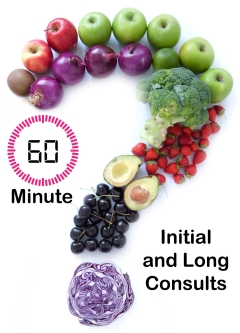DrCarney.com Blog
Male Fertility and Diet
Ten to fifteen percent of couples desiring to start a family discover that they are infertile. In about half of these cases, the husband is found to be the one infertile. Increasing the intake of saturated fat by just 5 percent was observed with a 38 percent lower sperm count in a recent Harvard Study. Infertility rates are also higher in couples that eat meat frequently. Dr. Michael Greger says that researchers believe that this may be due to endocrine-disrupting industrial pollutants such as pesticides and dioxin-like pollutants and steroids that build up in the fat of animals, especially fish. These chemicals can have adverse effects on male reproductive capability. This can even include the chemicals that may be present in the plastic wrap.
Research shows that frequent meat and dairy consumption "may negatively affect semen quality in humans" and that fruit and vegetable consumption "improves semen quality," due to its nutrient and antioxidant content. A statement made by the American Society for Reproductive Medicine stated that "Couples seeking assisted reproduction treatments must be advised about the drastic effect of both the male and female lifestyle on treatment success."
Dr. Greger also discusses how heavy metals like lead and cadmium are associated with infertility. High levels of cadmium are found in tuna, and the highest levels of lead are found in scallops and shrimp.
More Information:
(1) Fish May Interfere With Male Fertility
(2) Plant-Based Diet Improves Fertility
(3) How a Plant-Based Diet Improves Fertility
(4) Why Did You Quit Eating Meat?
(5) Meat Hormones Linked to Infertility
(6) Walnuts and Male Fertility
Michael Greger MD Links
One Hour Phone Consult with Dr. Carney

Telephone Food Coaching Sessions with Linda Carney MD
Due to demand for nutritional advice, Dr. Carney's offers Starch-Smart® System "Dietary Care Extraordinaire" Food Coaching telephone sessions. The first sessions is always one hour. Subsequent sessions can be thirty minutes or one hour:
Click Here For 60 Minute Food Coaching Session
Please Note: Food Coaching sessions are not medical appointments and are not intended to replace your own physician. No tests will be ordered and no prescriptions will be provided.
When you subscribe to the blog, we will send you an e-mail when there are new updates on the site so you wouldn't miss them.




